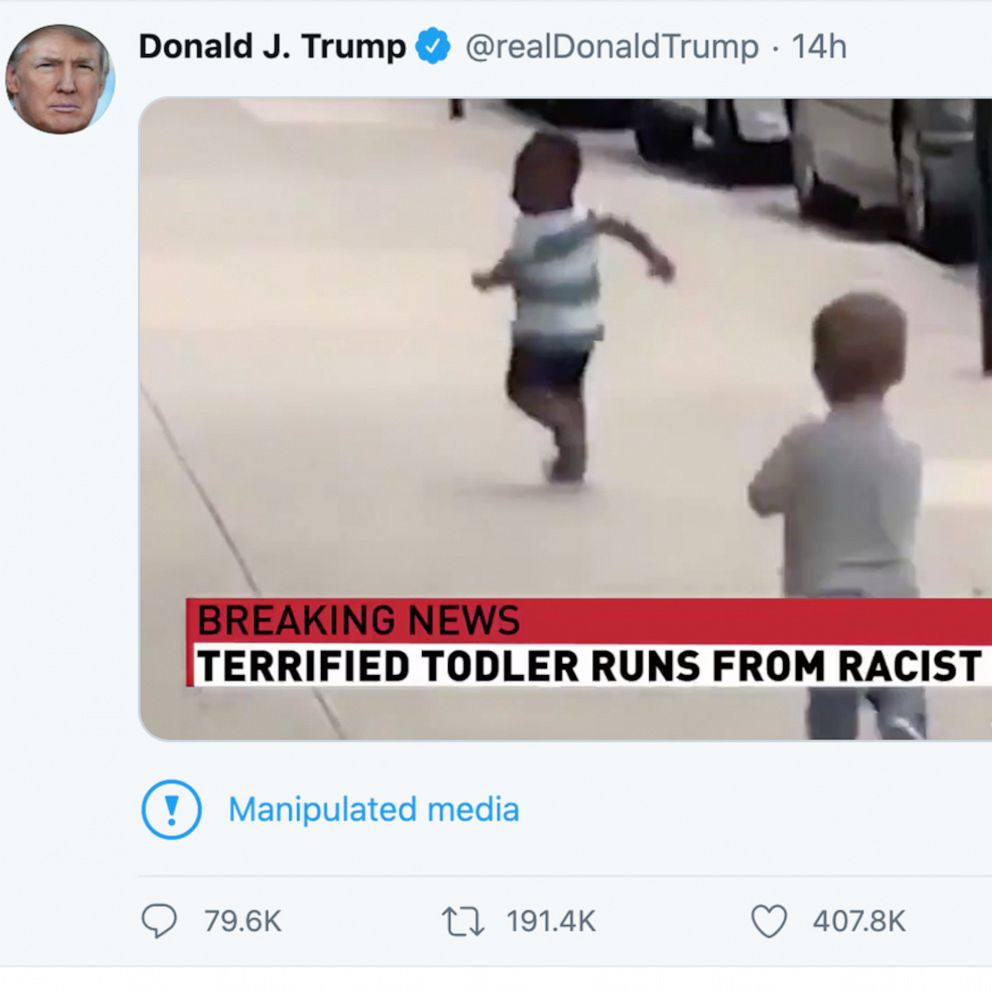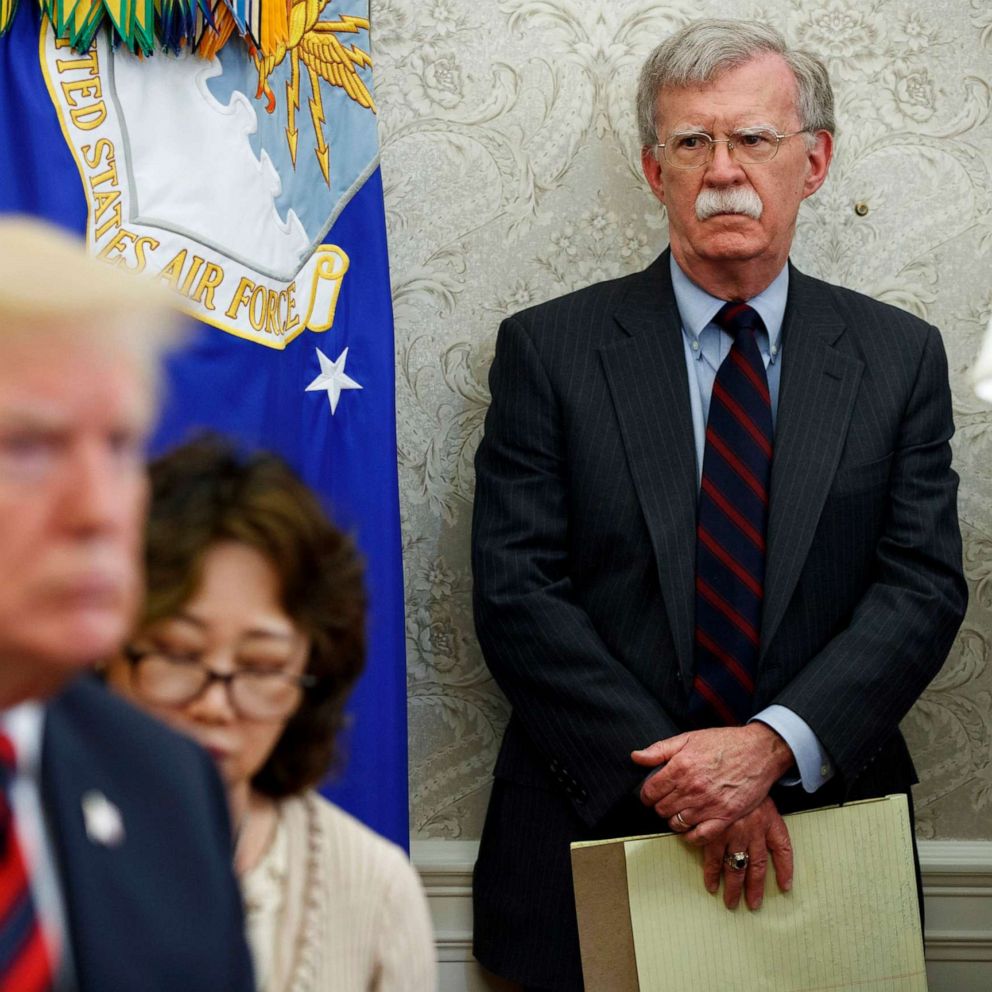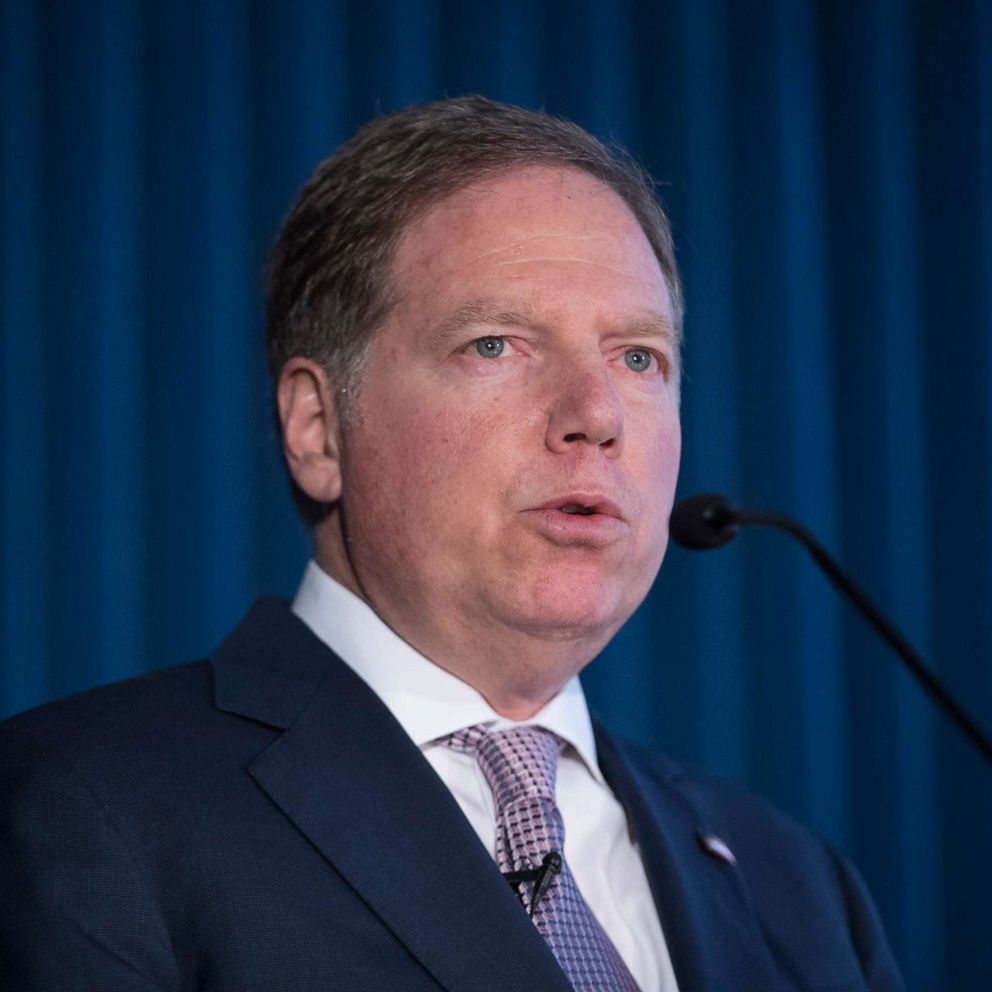There are no Black doctors in Congress. A candidate in Virginia hopes to change that.
But first, Cameron Webb has to win his primary and flip a red district blue.
In the weeks before the competitive Democratic primary in Virginia's 5th Congressional District, candidate Cameron Webb wasn't sleeping much.
"I'm in the four to five-hour range," he said in a phone interview.
But it wasn't nerves. It was the week of night shifts he'd just wrapped up at the hospital.
Webb, who is a doctor, works in Charlottesville treating coronavirus patients. His days are a mix of coordinating testing in different parts of the community -- he's the director of health policy and equity at the University of Virginia -- and, of course, campaigning to represent Virginia in the House of Representatives.
Webb, 37, who also has a law degree, is used to being busy. "As my wife says, I always do the most," he joked.
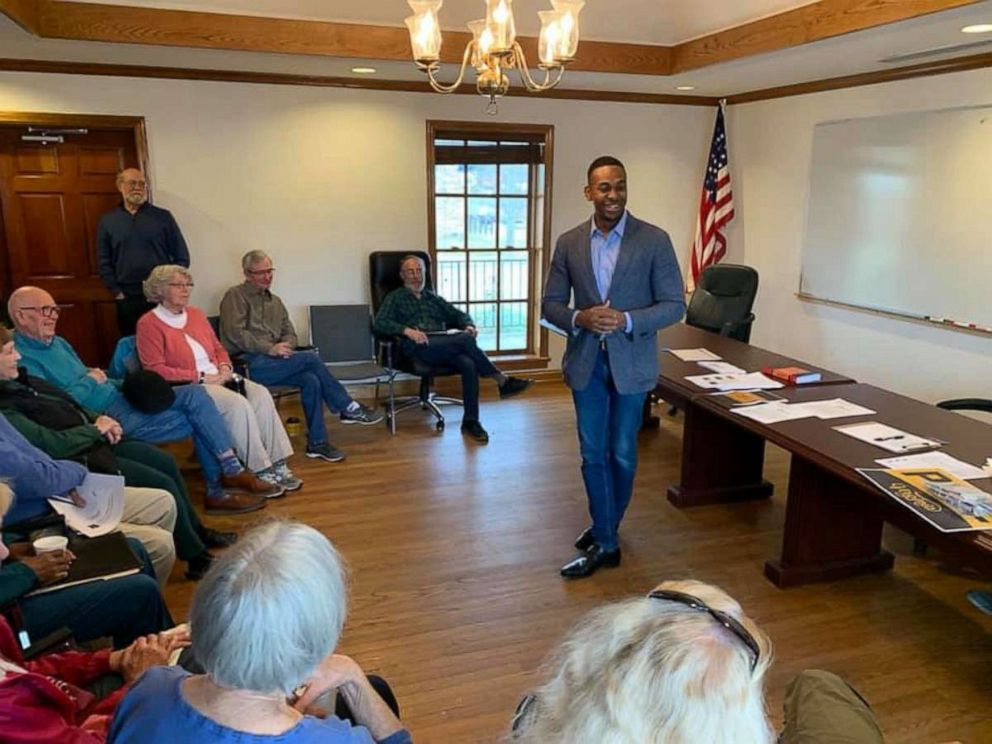
But his day-to-day during the campaign isn't even the tip of the iceberg. If elected, Webb will make history: In his district, he would be the first Black man elected to the seat, and in the nation, he would be the first Black doctor to be a voting member of Congress. Two Black doctors from the Virgin Islands have previously been elected, but had limiting voting privileges.
"It's certainly not the reason why I'm running -- but I do think that there's a symbolism to it that's valuable right now, in the midst of a health pandemic that's disproportionately affecting Black and brown communities," Webb said.
Black Americans have been hospitalized for coronavirus at a rate 4.5 times higher than white Americans, according to data from the Centers for Disease Control and Prevention, which is likely low because many states don't report on race. Latino hospitalization rates have been 3.5 times higher than for whites.
"And let's not forget all the other civil unrest in the setting of George Floyd's murder. That's also a public health crisis," Webb said.
"The extrajudicial killing of Black men and Black women across our society, that's a public health crisis, and I think being able to speak to that as a professor of public health -- I think it's helpful," Webb said.
Webb, who described health care as the central platform to his campaign and the most important issue to constituents, acknowledged that he didn't expect either of the current crises -- one brand new, one centuries old -- to overtake his race.
"When I decided to run in August, I didn't have any clear sense of exactly what our country would be facing in the months leading up to the election. But we are where we are, and we need the leaders that we need for the moment that we're in," Webb said. "And I think that, uniquely, I have this background that just put me in the right place at the right time to serve my community."
Though Webb's district has been Republican for over a decade and his path to the Democratic nomination is far from settled, the last few weeks have shifted the state of play in favorable ways for Webb.
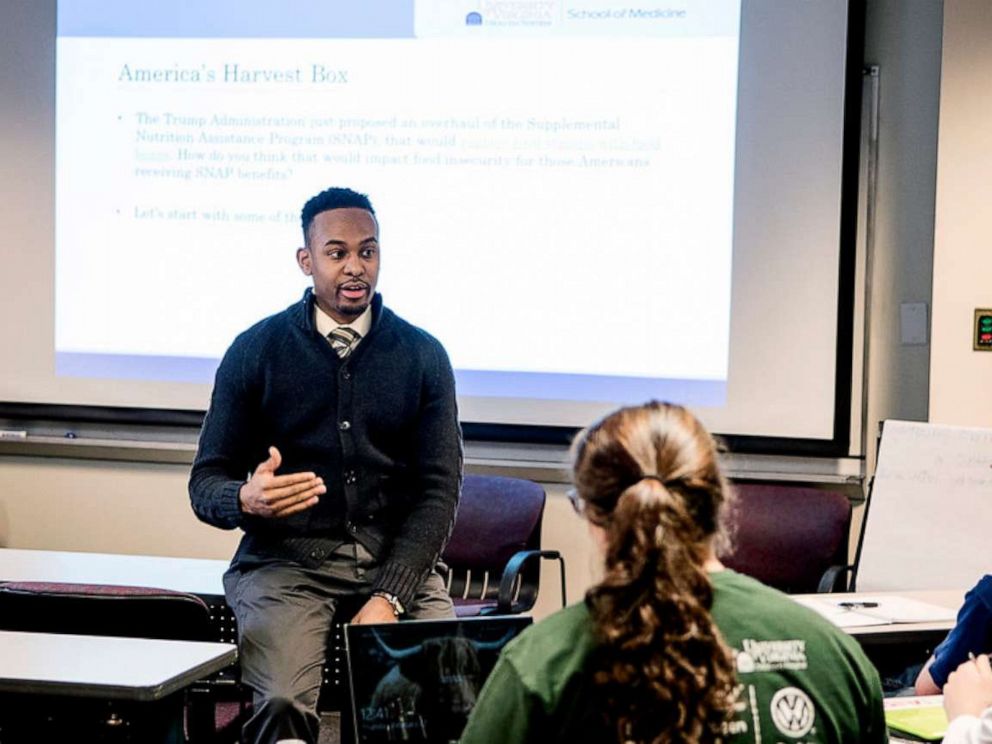
Webb has been consistently out-fundraised by competitor RD Huffstetler, who's running for the seat for the second time, but his campaign has recently netted national attention from a handful of big-name endorsements from powerful black legislators like Reps. Ayanna Pressley of Massachusetts, John Lewis of Georgia and Sen. Kamala Harris of California, a vice presidential contender.
The campaign has also gotten a $200,000 fundraising boost over two weeks, Webb said.
"I would say Hufstetler is ahead, but I wouldn't really rule anyone out," said J. Miles Coleman, associate editor at Sabato's Crystal Ball, a political analysis institution run by the University of Virginia Center for Politics. There is no recent public polling in the area, however, so analysts are "flying blind," Coleman cautioned.
And while the district is still considered red by most political experts, the messy Republican convention that ended last week in an upset victory for Bob Good, a far-right challenger with much less money than the sitting Republican, Rep. Denver Riggleman, weakened the Party's chances.
Neither Riggleman nor Good responded to requests for an interview.
In a statement after he won, Good described his priorities as "immigration reform, protection of our unborn, defense of the 2nd Amendment and support for Trump's America first agenda."
Both Cook Political Report, another political analysis group, and Sabato's Crystal Ball moved the race from "likely Republican" down to "leans Republican" after Good won.
A primary reason, Coleman said, was because of a paperwork technicality that prevented, Good, a former Liberty University athletics administrator and county supervisor, from officially making the ballot for the November election -- though that could change. Good also didn't receive the endorsement of President Donald Trump, which went to Riggleman, or the attention the former congressman did.
"Is Bob Good going to be on the ballot? Is he going to step up his fundraising? There was enough uncertainty on the Republican side of the ballot for us to move it to a more competitive category," Coleman said.
But at the end of the day, Coleman said, Democrats would still need a "perfect storm to flip the district," which Trump won by 11 points in 2016.
Much of that challenge for Democrats is reaching voters in Southside Virginia, which makes up a large part of the district south of Charlottesville and which Coleman described as the "name of the region, but a state of mind as well."
"It's the part of the state that's more culturally like the rest of the Deep South. It's very conservative. In the past, it's tended to favor a conservative populist type of candidate," he said. In his 1968 presidential run, for example, the well-known segregationist and former Alabama Gov. George Wallace carried much of Southside Virginia.
The region also, however, has a block of rural Black voters that Democrats have struggled to turnout to vote ever since former President Barack Obama left office, said Coleman. In nine of the counties, more than 35% of the population is Black.
The statistics are not lost on Webb. "A big part of our campaign is engaging African American voters in Southside," he said.
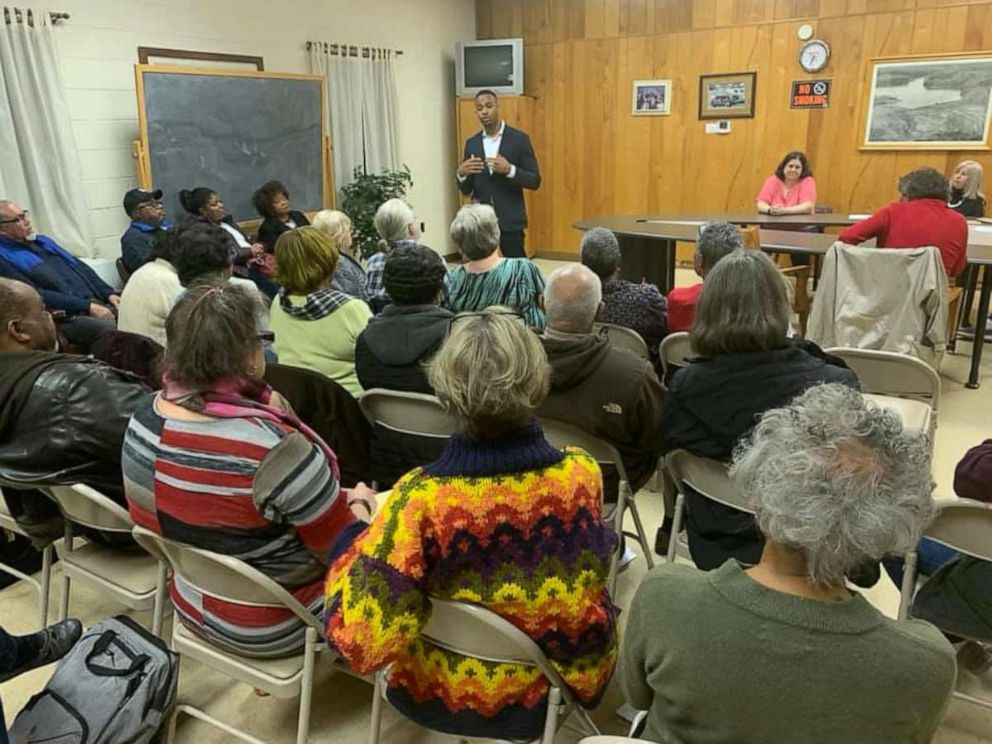
His only in-person campaign event since March was a small roundtable in Southside to talk about ballot access and how to vote during coronavirus. He's consistently worked with churches up and down the area to connect with voters virtually, a tactic that has been surprisingly innovative.
"They call it the spiderweb," Webb said, laughing. According to Webb, Black voters in the Southside have created a "phone tree" of civic organizations and church leaders who each pledge to call around 10 other people and campaign for him.
And while it's not just bBack voters that he is trying to reach, Webb said, the effort in Southside Virginia has been eye-opening for him in understanding the political effects of history he lived through as a Black man growing up in central Virginia.
"I want to be clear, all Black voters are not a monolith, all Black voters are not Democrats and they're not going to think and act the same way," he said. "That's not the contention at all, but it's just recognizing that, for me, it's really important to ask the Black community all over this district for their vote, and to let them know why I hope to be worthy of their vote, and I think that's something that doesn't always happen."
That was particularly evident in 2018, Webb noted, when 33,000 registered Black voters didn't turn out to vote in the midterms. The Democrat running in Virginia's 5th Congressional District, Leslie Cockburn, lost to Riggleman by 20,000 votes.
"Simply by doing the math, you can see that if I spend a lot of my time engaging those area voters and saying here's who I am as a candidate -- it's not a matter of, 'we're of the same race and so support me' -- it's a matter of, 'Here are the policies that are important to me' ... and really earnestly seeking their vote as an important vote to receive, that's what's going to to make the difference," Webb said.
